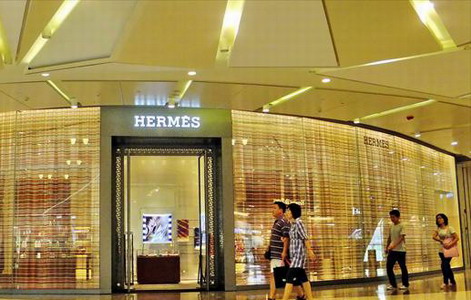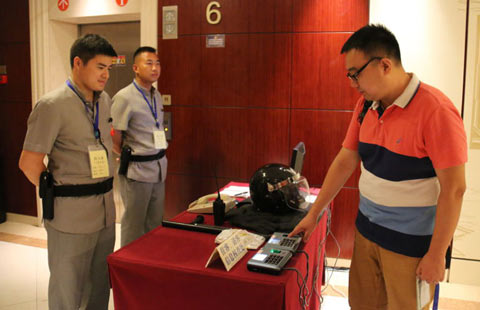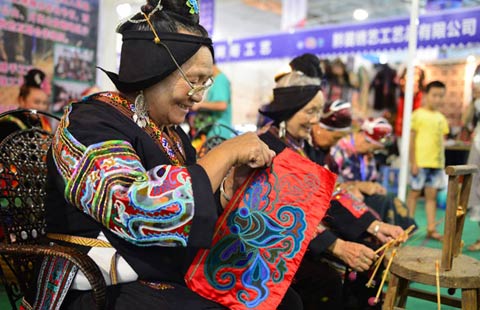Hermes left holding the bag in trademark dispute
By Zhang zhao (China Daily) Updated: 2012-03-07 07:53
|
 |
|
A Hermes shop in Shanghai. The French luxury brand recently lost an appeal of rulings on its Chinese-language trademark. [Photo / China Daily] |
High fashion brand Hermes has found itself holding the bag after a Beijing court ruled its Chinese-language trademark is legally owned by a clothing maker from Guangdong province.
Paris-based Hermes International registered the English trademark Hermes in China as early as 1977, but never applied for the Chinese version.
The oversight resulted in a long-running dispute with Dafeng Garment Co from Foshan, which registered a Chinese-character trademark in 1995 that is pronounced the same as Hermes' Chinese name - but with a slight difference in its written form.
From 1997 to 2009, the French company filed a series of objections with the State Administration for Industry and Commerce Trademark Appeal Board asking it to void the disputed trademark, but each time the board rejected the claim.
Hermes then sued the board last year in Beijing First Intermediate Court, but failed yet again.
It argued in court that its name enjoys worldwide fame, so it should be granted well-known trademark status in China. It claimed that the trademark registered by Dafeng was a Chinese translation of Hermes and asked the court to overturn the appeal board ruling.
But the board and the Chinese company asserted the trademark was approved "under normal legal procedures".
The Beijing court ruled that Hermes failed to prove its unregistered trademark is a well-known name on the Chinese mainland because all of the evidence it submitted came from Hong Kong media, and most was published after Dafeng registered its trademark.
Zhang Tao, a lawyer with Beijing Xin Ping Law Firm, said the core of the dispute is whether Hermes was a famous brand with consumers on the Chinese mainland before 1995.
The burden of proof is on Hermes, he said.
"If it can prove it, then according to the Trademark Law, the appeal board will revoke the trademark registered by the Chinese company," he said.
"Such cases are not rare," said Cui Hongbo, CEO of Shanghai-based brand consultant firm Zhengjian. "Many international business giants register their English trademarks in China when they enter the market, but do not consider the Chinese versions.
"Then they find themselves in a hard position as their market share expands and they do not own the Chinese trademark."
China Business News quoted an anonymous industry insider saying "the Chinese market was not a focus of many luxury brands before, but today it's playing a major role in their global strategies".
"As the market for luxury goods in China grows even bigger, more people are trying to make some short-term profit," the source said. "The emerging Chinese market means that foreign luxury goods makers will pay more attention to protection of their brands."
But other industry watchers believe such copycat or derivative trademarks have little influence on real luxury brands because they target different consumer groups.
zhangzhao@chinadaily.com.cn
- Yongche steps up drive to do battle with Didi
- Top 8 Chinese brands seek Rio gold
- Fujian achieves breakthrough in LED technology
- Farm produce prices stay broadly flat
- China to promote G20 as efficient platform for world governance: Turkish experts
- Didi, Uber yet to submit merger papers to ministry
- Shanghai bourse sees first regional bank listing since financial crisis
- Cambodia inaugurates China-funded road in western province


















